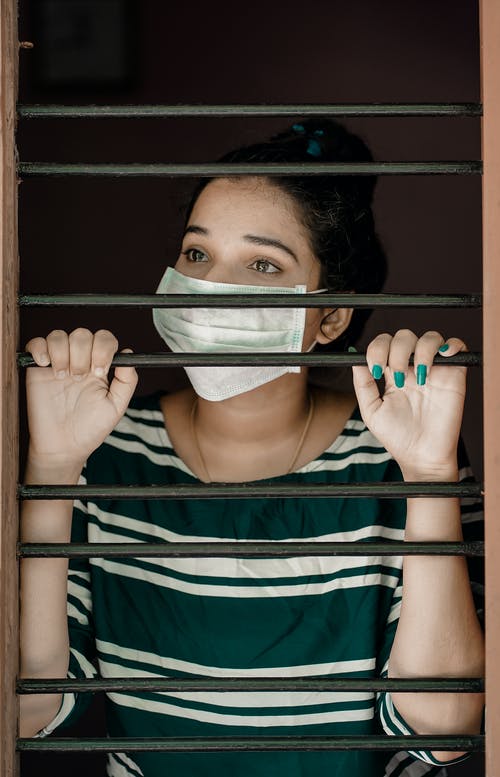
A few months ago, many health care workers reported at least a third of their clients were showing signs of clinical anxiety and depression due to the pandemic. Another 40 percent were exhibiting more challenging symptoms–from strange facial rashes, eye and throat irritations to chest tightness they couldn’t explain. Could it be the corona virus?
After talking with each of these clients, and listening carefully, Sabrina A. Falquier, an internal medicine MD, realized that all of these folks had something in common. “Sure enough, it comes out, ‘Oh yes, I’ve been cleaning,’” she said. They’d been overusing bleach products in their homes in response to the pandemic threat. Some were cleaning many times a day. Others were not diluting the bleach enough before using it. (Bleach must be significantly diluted to avoid injury. Plain old soap can be a better weapon against this particular virus.)
In reality, she found that the anxiety folks were not so different from the bleach folks–in other words, like all of us, they’re trying to find ways to handle this challenging threat that’s unpredictable and invisible. So there’s a sense of, ‘If we clean enough, the virus will go away. Both were at risk of making things worse in the process.
Right now, nearly two-thirds of Americans say they are scared about their own family’s health, according to a new poll by More in Common and YouGov. Three-quarters believe we are likely heading for an economic depression. Calls to the federal Disaster Distress Helpline (call 800-985-5990 or text TalkWithUs to 66746) are up 500 percent, according to a spokesperson. Do these numbers represent a secondary pandemic?
Fear requires two aspects: a perceived threat and a sense of powerlessness to defeat that threat. Since the feeling of fear is distinctly uncomfortable, most of us will try to counter it in the days to come–either by turning down the threat level or by powering up our sense of control.
In response to the first option, we might convince ourselves this is all an overreaction. Admittedly, I initially did this. The whole crazy lockdown felt like a giant snow day, or so I told myself. And to help us along this trail, the Internet is happy to help, as is our brain. It’s no big surprise that denial is the most common human response to all kinds of disasters, from fire to floods to pandemics. We might also use food, drugs or alcohol to take the edge off the threat. (My current preference is late-night ice cream.)
Regarding the second option, we might try to regroup some sense of control over this deal. While this could be the beginning of an excellent plan it can also backfire, as it did for the bleach patients. It can be so easy to overcorrect in a time of high anxiety.
Consider this interesting fact: After 9/11, thousands of Americans decided to drive places instead of flying when they had a long trip to make since it felt so much safer after the horrors of the terrorist attacks. That seemed like a big da!
But obviously feeling safer isn’t the same as being safer. In the two years following 9/11, an estimated 2,300 Americans died because they drove instead of flying to their destinations, according to a 2009 study. So, bottom line–thousands of people died–while trying to avoid it.
The trick right now is to take control over this threat, without making things worse. For her patients, Falquier recommends they boost their immune systems in five specific ways (#6 is my addition). Until this advice becomes as common as the advice to “wash your hands” and “stay home,” it bears repeating. These actions give us control in ways that are proven to make us physically stronger, not just emotionally safer.
1. Eat whole foods, which are dense with immunity boosting nutrients. (My next article will focus on a helpful eating option.)
2. Talk with other humans by phone or video.
3. Sleep (ideally 6-8 hrs, at the same time each night, more or less).
4. Get some form of movement/exercise at least 30 minutes a day.
5. Try to do something that keeps your brain resting in the present for a little while (whether it’s gardening, listening to music or meditating). Maybe cleaning is that thing for you. Fine.
6. Hold gratitude in our heart for all that is helping us survive and thrive in these challenging times.
All these things help give us back control–preventing fear from becoming disabling.
Fear is not new. Nor is danger and uncertainty. Americans have a long history of navigating both. The solution is to take back control, very carefully and let’s be gentle with ourselves in the process, Warriors.
More corona virus humor: Keep in mind, even during a pandemic, no matter how much chocolate (or ice cream) you eat, your earrings will still fit.
